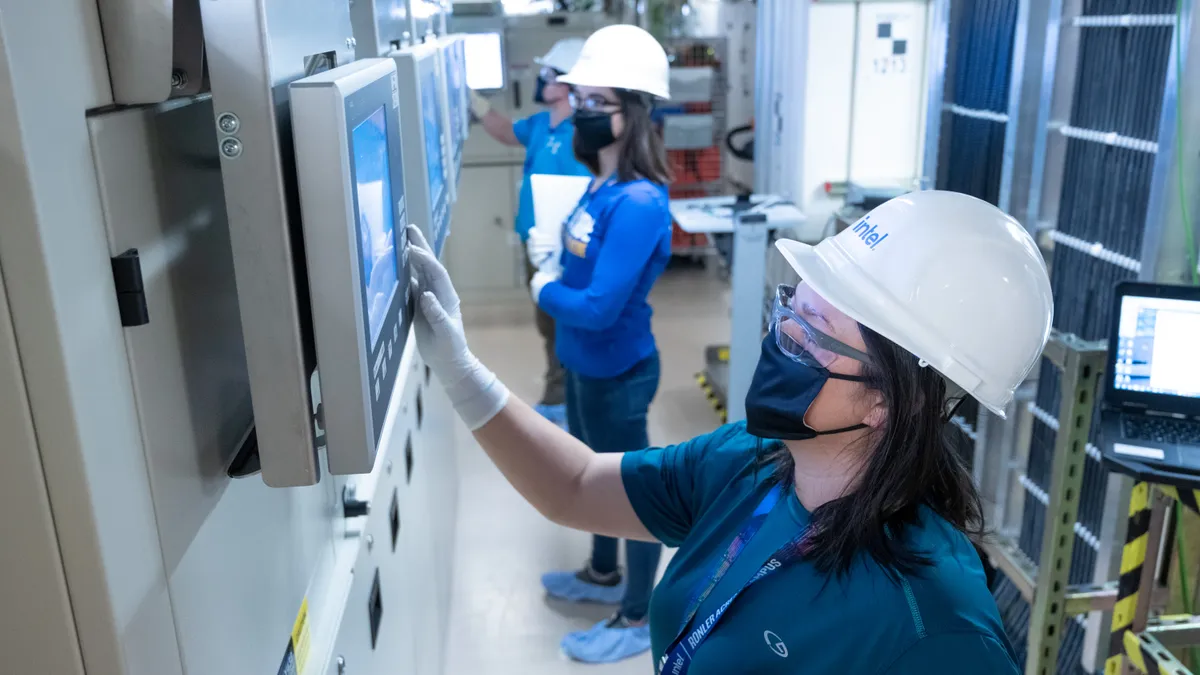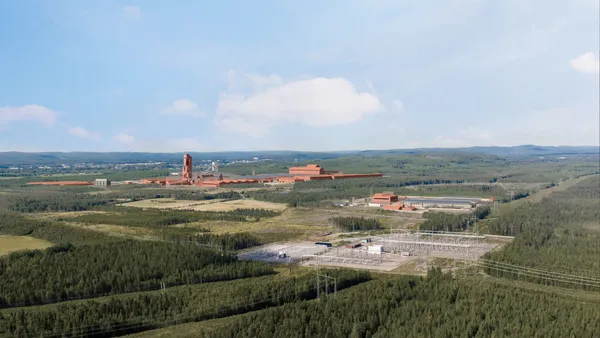Dive Brief:
- The Biden administration granted Intel an $8.5 billion funding award on Wednesday as part of the CHIPS and Science Act, the largest given so far under the law.
- The preliminary agreement also includes up to $11 billion in loans provided by the funding law. The money will be used for Intel’s semiconductor projects in Arizona, New Mexico, Ohio and Oregon, the company said in an announcement.
- The chip giant also plans to claim the Department of Treasury’s investment tax credit equal up to 25% on more than Intel’s $100 billion U.S. investments.
Dive Insight:
The four semiconductor projects are part of Intel’s plan to invest more than $100 billion to expand chip production capacity and capabilities in the U.S. over the next five years.
Those plans include delivering five semiconductor process nodes in four years and a push for the growth of its most advanced process node, Intel 18A. Microsoft plans to use the 18A node to produce a chip the software maker designed in-house.
Intel’s advanced chips will be used in technologies that help develop artificial intelligence and military capabilities. This includes advanced packaging technologies that it will combine with its foundry services to better serve U.S.-based customers, according to the Commerce Department press release.
“AI is supercharging the digital revolution and everything digital needs semiconductors,” Intel CEO Pat Gelsinger said in a statement. “CHIPS Act support will help to ensure that Intel and the U.S. stay at the forefront of the AI era as we build a resilient and sustainable semiconductor supply chain to power our nation’s future.”
Intel’s investment will also create over 10,000 manufacturing jobs and nearly 20,000 construction jobs, as well as 50,000 indirect jobs created throughout the chipmaker’s supply chain and supporting industries.
The agreement also includes approximately $50 million to focus on developing Intel’s semiconductor and construction workforce. The chipmaker has spent $250 million over the past five years on workforce development, building partnerships with local communities, colleges and universities and apprenticeship programs.
The new funding might help with Intel’s construction schedules as the company has encountered a recent delay in one of its domestic manufacturing projects. Last month, the company pushed back the timeline for its $20 billion semiconductor project in New Albany, Ohio. The New Albany site, which includes two chip factories, is now expected to be complete by late 2026.
“The funds from the CHIPS Act will help to support our ongoing work in Ohio, alongside our projects in Arizona, New Mexico and Oregon,” an Intel spokesperson said in an email Wednesday. “With regard to Ohio, typical timelines for development of a facility of that scale is 3-5 years from groundbreaking, depending on various factors.”














